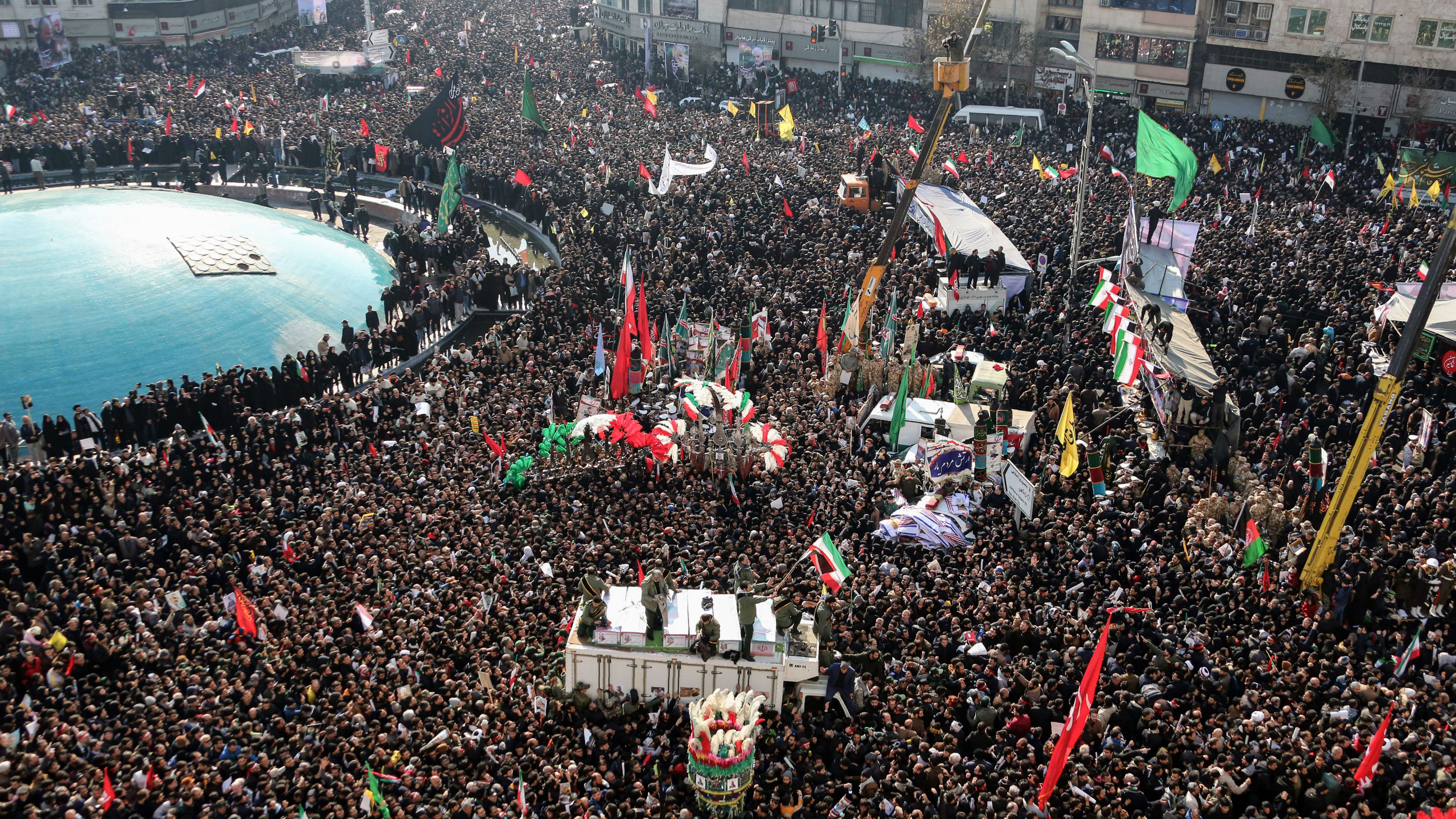‘A historic nightmare’: Iran considering 13 ‘revenge scenarios’ against US
Iranian security council moves to deny earlier claims about retribution plans

A free daily email with the biggest news stories of the day – and the best features from TheWeek.com
You are now subscribed
Your newsletter sign-up was successful
Tehran is reportedly considering 13 different “revenge scenarios” in response to the US assassination of top Iranian general Qasem Soleimani.
Addressing a meeting of his government’s National Security Council shortly after the killing, Supreme Leader Ali Khamenei said that any violent response would take the form of “a direct and proportional attack on American interests” carried out by Iranian forces, The New York Times reports.
The announcement marks a “startling departure for the Iranian leadership”, which has “almost always cloaked its attacks behind the actions of proxies it had cultivated around the region”, the US newspaper adds.
The Week
Escape your echo chamber. Get the facts behind the news, plus analysis from multiple perspectives.

Sign up for The Week's Free Newsletters
From our morning news briefing to a weekly Good News Newsletter, get the best of The Week delivered directly to your inbox.
From our morning news briefing to a weekly Good News Newsletter, get the best of The Week delivered directly to your inbox.
According to Reuters, the head of the security council, Ali Shamkhani, has reportedly stated that 13 “revenge scenarios” are being considered by the Ayatollah, who is said to have had a close relationship with Soleimani.
Even the weakest option would prove “a historic nightmare for the Americans”, said Shamkhani, in quotes reported by Iran’s semi-official Fars news agency.
The SNSC later denied that Shamkhani had given the interview, with SNSC secretariat saying: “A local paper yesterday committed a criminal act and attributed an interview to the SNSC’s secretary which had not taken place. Legal action is underway to understand how and and why the interview was produced and published.”
The SNSC’s claims that the interview did not take place have not been proven.
A free daily email with the biggest news stories of the day – and the best features from TheWeek.com
In a separate warning, a senior advisor to the supreme leader has said that the US will face “another Vietnam” if American forces do not leave the region, according to Newsweek.
Donald Trump has responded to the threats by warning that the US may attack 52 Iranian targets if Tehran retaliates for the killing of Soleimani, who died in an air strike on Iraq last Friday.
The US president claims the targets include sites of cultural importance to the Gulf nation - despite experts warning that such attacks could constitute war crimes if carried out.
Soleimani, who was considered to be the second-most powerful man in Iran, is being buried today in his home town of Kerman. Millions of mourners are “already estimated to have packed the streets for funeral processions” in Tehran and other Iranian cities over the past few days, the BBC reports.
Crowds in the capital yesterday chanted “death to America” and “death to Trump”.
-
 Why is the Trump administration talking about ‘Western civilization’?
Why is the Trump administration talking about ‘Western civilization’?Talking Points Rubio says Europe, US bonded by religion and ancestry
-
 Quentin Deranque: a student’s death energizes the French far right
Quentin Deranque: a student’s death energizes the French far rightIN THE SPOTLIGHT Reactions to the violent killing of an ultraconservative activist offer a glimpse at the culture wars roiling France ahead of next year’s elections
-
 Secured vs. unsecured loans: how do they differ and which is better?
Secured vs. unsecured loans: how do they differ and which is better?the explainer They are distinguished by the level of risk and the inclusion of collateral
-
 Munich Security Conference: a showdown between Europe and Trump?
Munich Security Conference: a showdown between Europe and Trump?Today’s Big Question Report suggests European leaders believe they can no longer rely on the US for military support – but decoupling is easier said than done
-
 New START: the final US-Russia nuclear treaty about to expire
New START: the final US-Russia nuclear treaty about to expireThe Explainer The last agreement between Washington and Moscow expires within weeks
-
 Would Europe defend Greenland from US aggression?
Would Europe defend Greenland from US aggression?Today’s Big Question ‘Mildness’ of EU pushback against Trump provocation ‘illustrates the bind Europe finds itself in’
-
 Greenland, Colombia, Cuba: where is Donald Trump eyeing up next?
Greenland, Colombia, Cuba: where is Donald Trump eyeing up next?Today's Big Question Ousting Venezuela’s leader could embolden the US administration to exert its dominance elsewhere
-
 Did Trump just end the US-Europe alliance?
Did Trump just end the US-Europe alliance?Today's Big Question New US national security policy drops ‘grenade’ on Europe and should serve as ‘the mother of all wake-up calls’
-
 Taiwan eyes Iron Dome-like defence against China
Taiwan eyes Iron Dome-like defence against ChinaUnder the Radar President announces historic increase in defence spending as Chinese aggression towards autonomous island escalates
-
 Is conscription the answer to Europe’s security woes?
Is conscription the answer to Europe’s security woes?Today's Big Question How best to boost troop numbers to deal with Russian threat is ‘prompting fierce and soul-searching debates’
-
 Trump peace deal: an offer Zelenskyy can’t refuse?
Trump peace deal: an offer Zelenskyy can’t refuse?Today’s Big Question ‘Unpalatable’ US plan may strengthen embattled Ukrainian president at home